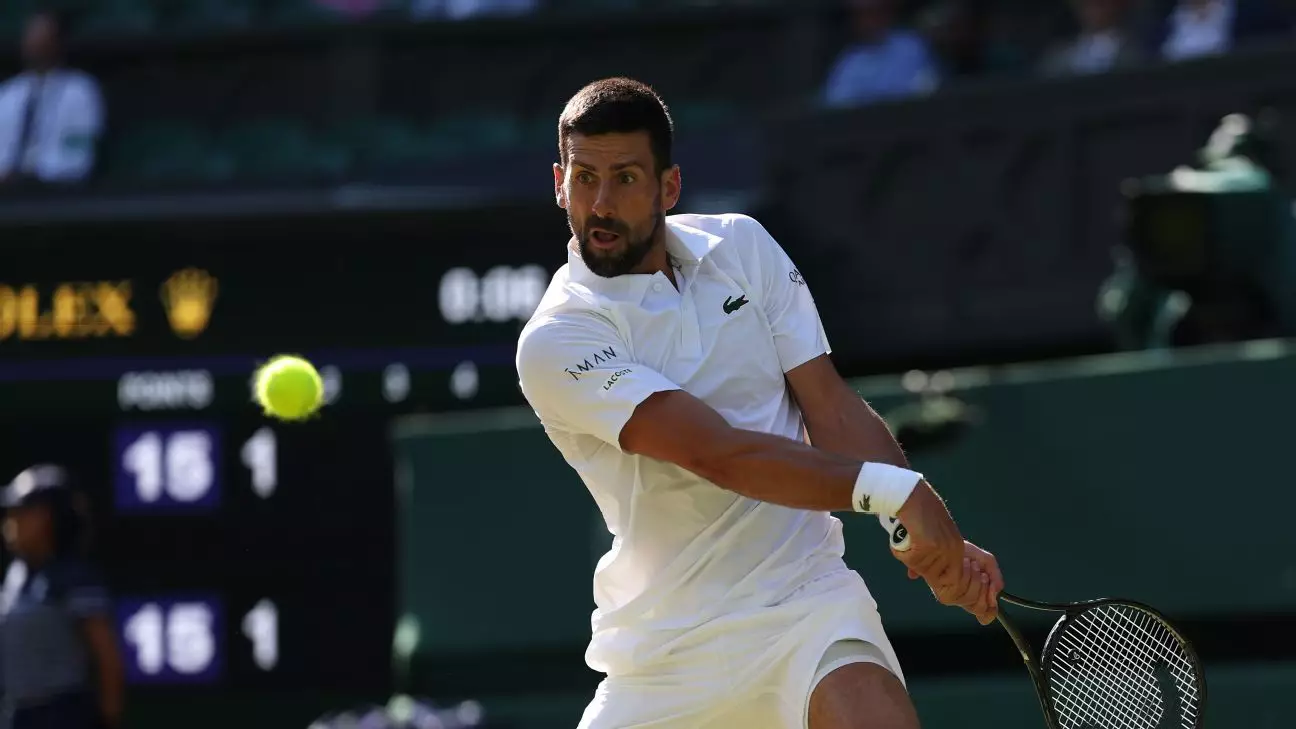Novak Djokovic’s recent exit from Wimbledon has sparked more than just disappointment among fans and pundits—it has ignited a deeper debate about the longevity and sustainability of sports greatness. At 38, Djokovic’s journey has been nothing short of extraordinary, marking him as one of the most dominant figures in tennis history. Yet, his emotional farewell, however tentative it may seem, underscores a broader narrative: even icons face the inevitable question of when to step away. His departure, surrounded by reverence and speculation, challenges us to consider whether this truly marks the end of his Wimbledon chapter or simply a pause before a potential comeback.
While Djokovic maintains optimism about returning, his comments reveal a complex interplay between personal ambition and physical resilience. He waved at the crowd with a mixture of gratitude and wistfulness, visibly emotional yet vowing not to conclude his Wimbledon story prematurely. Such moments are a stark reminder—sports greatness isn’t just measured in titles but also in the valiant battles against age and the limits of the human body. Djokovic’s acknowledgment of being physically compromised hints at the toll that relentless competition takes, forcing us to ask: Is this decline a natural course, or the beginning of a final curtain?
The Myth of the Invincible Athlete in an Era of Transition
In the landscape of contemporary tennis, Djokovic’s performance over the past year illustrates a sport in flux. Despite competing at elite levels, his inability to secure a Grand Slam title in recent times signals a shifting of power toward younger contenders like Carlos Alcaraz and Jannik Sinner. These rising stars are not just challengers—they embody a new era that questions the future of players like Djokovic who once seemed unbeatable.
The sporting mythos surrounding Djokovic has been one of resilience and relentless pursuit of excellence. However, the recent pattern of near-misses and early exits paints a compelling picture: even the greatest athletes are not immune to age. His statement about “playing his best at Grand Slams” indicates a fighter’s spirit, but also underscores the brutal truth that youth has an undeniable edge. As the tennis world evolves, the narrative of Djokovic’s career becomes a poignant reflection of an athlete balancing the desire for legacy with the reality of physical decline, hinting at a momentous shift in the sport’s competitive hierarchy.
The Political and Cultural Significance of a Career’s End
Djokovic’s potential retirement isn’t merely a drop in the sporting bucket; it carries cultural resonance in a sport deeply intertwined with national identity and global influence. As a Serbian icon, his career has transcended tennis, serving as a symbol of perseverance and national pride. His farewell, therefore, prompts a broader reflection on how athletes embody their countries and how their departures are felt on international stages.
Moreover, Djokovic’s career trajectory exemplifies the challenges of sustaining excellence in a world dominated by commercial interests and media scrutiny. His recent struggles highlight the pressures facing aging athletes, who must navigate the delicate balance of maintaining relevance while listening to their bodies’ signals. As he considers his future, the decision will inevitably echo in discussions about sports sustainability, athlete health, and the ethical responsibilities of managing aging stars within a profit-driven ecosystem. His story underscores that even in pursuits of greatness, human vulnerability remains a universal truth deserving recognition and respect.
The Uncertain Road Ahead: Legacy, Resilience, and the Future of Tennis
Looking forward, Djokovic’s next moves could reshape not only his legacy but also the sport’s landscape. While he has expressed hope of returning to Wimbledon, the reality of imminent retirement looms larger than ever. His career has already set a high bar—24 Grand Slam titles and a record-tying number of major singles wins. Yet, the shadows of aging and recent setbacks threaten to redefine what “greatness” means in tennis.
In this pivotal moment, Djokovic’s decision will be scrutinized through the lens of his contribution to the sport’s evolution. Will he heed the call to prolong his career for personal and competitive reasons, or will he recognize when it’s time to step aside gracefully? The choices he makes will serve as a testament to the complex negotiation between ambition and pragmatism that all aging athletes confront. His journey continues to remind us that true greatness isn’t only about the trophies amassed but also about navigating the fragile transition from peak performance to legacy preservation.



Leave a Reply